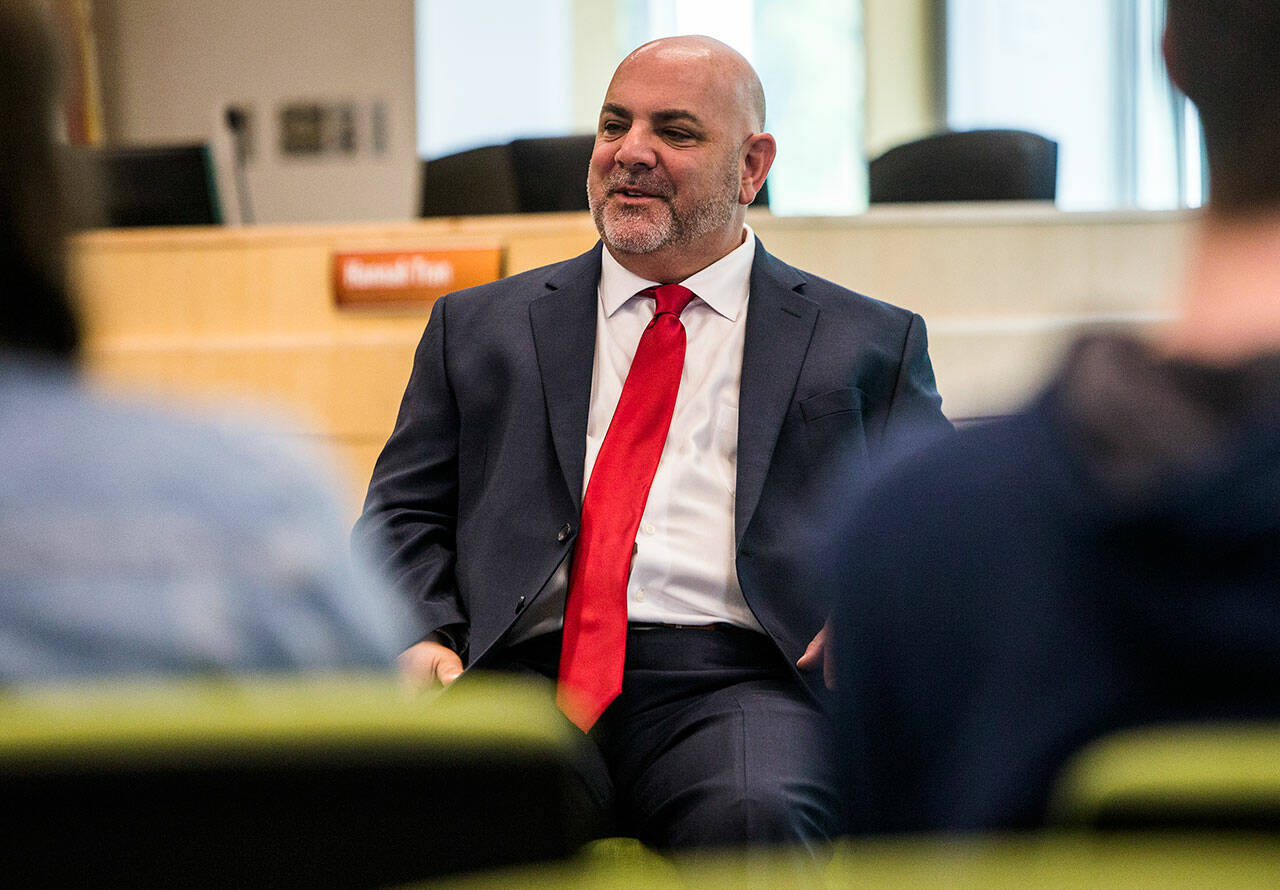EVERETT — Dozens of teachers, administrators and paraeducators would lose their jobs and an online academy for students would shut down under a cost-cutting plan approved by leaders of Everett Public Schools on Tuesday.
As many as 142 full-time positions would be eliminated, including elementary and secondary teachers, in the school board’s blueprint for overcoming a looming $28 million budget deficit next school year.
On a 5-0 vote, the board adopted the Reduced Educational Program. The action clears the way for Superintendent Ian Saltzman to begin preparing for possible job reductions, a process requiring negotiations with employees covered under collective bargaining agreements.
“We’re affecting real people with these decisions,” school board member Andrew Nicholls said. “None of us are taking that lightly.”
Board president Pam LeSesne added: “Our cuts should be as far away from students as possible.”
Everett School District, like many others in the county and around the state, faces a confluence of threats to their budget next school year.
Enrollment is down and inflation is up. Federal pandemic aid is going away and state dollars aren’t likely to be enough to make up the loss.
In Everett, revenues for next school year are projected to be roughly the same as this year. Employee salary increases, most of which are tied through contracts to inflation, will add $27.7 million in expenses, according to a district budget presentation.
There’s uncertainty around that figure because the state has yet to set the inflation factor districts must use. That figure will come out in late spring.
Other school districts in Snohomish County are preparing spending reduction road maps in response to their own projected deficits. But they are waiting to adopt them, some until mid- to late April, in part because by then it may be clearer how much state aid will be coming.
Saltzman said the Everett board wanted to act now to be transparent with families and employees about the situation. As new information arrives, plans can be updated, he said.
“We hope for relief. We’re looking forward to seeing what happens,” he said. “This is a very challenging time for everybody and every district. We wanted to get out early. We felt it was the right thing to do for our system.”
Ahead of Tuesday’s vote, the board held several public meetings. Saltzman said there’s been ongoing conversations with employee unions.
“I think it’s preparing for the the worst-case scenario when they don’t have a lot of answers from Olympia,” said Jared Kink, president of the Everett Education Association, the union representing teachers.
The plan approved Tuesday calls for a reduction of 142.3 full-time-equivalent positions across Everett Public Schools.
Of the total, roughly 42 full-time certificated classroom teacher slots are targeted — six elementary, nine middle school, 15 high school and another 12 working as instructional coaches and support teachers. District officials and Kink think retirements and resignations could cover most of these, thus avoiding layoffs.
Another 14 school site administrators and nearly 24 paraeducator jobs are on the chopping block.
Also on the line are clerical and office positions, and roughly two dozen additional teachers who work with students at different schools. Those support instructors and facilitators have expertise in specific subjects and programs.
Everett Virtual Academy, launched in the fall of 2021 for students who wanted a full year of remote learning, would close at the end of the current school year.
Enrollment has been dropping as students choose to return to class, officials said. There are 146 students in first through eighth grades currently enrolled, down from a peak of 600.
The board’s decision to itemize potential cuts this early is appreciated, Kink said, even though it is “causing a lot of stress on people and systems.”
State lawmakers could ease the stress by answering funding questions sooner than later, he said.
Two big questions are whether the state will fully fund special education costs and if it will backfill federal pandemic aid when it is used up next year.
A lot of those federal dollars, he said, have gone to support students with learning loss and those dealing with behavioral health issues.
“The problem has not gone away,” he said. “It’s really frustrating that Olympia is not responsive to this. They’re abandoning the problem.”
Jerry Cornfield: 360-352-8623;
Talk to us
> Give us your news tips.
> Send us a letter to the editor.
> More Herald contact information.

























